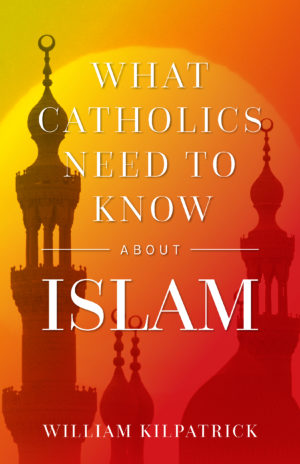|
Getting your Trinity Audio player ready...
|
Although Islamic jihad attacks occur on a daily basis in Asia, Africa, and the Middle East, they seem to be less frequent now in America. There have been major terror attacks in the U.S., but not for some time. The last major jihad event was the 2016 massacre at the Pulse Night Club in Orlando, which resulted in forty-nine deaths and over fifty injuries.
Is it time to sound the all-clear signal for the U.S.? Well, maybe not. You might recall that, on July 14, a Fargo, North Dakota man, Mohamad Barakat, opened fire on police at the scene of a traffic accident. Barakat killed one officer and wounded two others and a bystander before being shot and killed by a fourth officer.
Jihad attack? It didn’t seem so at first. Barakat couldn’t have anticipated that he was going to encounter an accident scene that day, so he couldn’t have planned for what happened. It was assumed that he simply hated police and took advantage of an opportunity to kill some.
Orthodox. Faithful. Free.
Sign up to get Crisis articles delivered to your inbox daily
But, as it soon appeared, Barakat did have a plan for that day—a much bigger plan than murdering one police officer.
Barakat’s car contained a small arsenal of weapons: three rapid-fire long guns; four handguns; 1,800 rounds of ammunition; three containers of gasoline; two propane tanks (one filled with explosives); and a hand grenade.
Moreover, Barakat had been searching the internet for “mass shooting events” and “area events where there are crowds.”
On July 13, his search ended with the headline “Thousands enjoy first day of Downtown Fargo Street Fair.”
But on the 14th, thanks to one brave police officer, Barakat never got to the fair. It was a tragic day, but it could have been even more tragic.
What was Barakat’s motive? Unsurprisingly, the authorities and the media were stumped. I say “unsurprisingly” because it’s become standard practice to deny that jihad-like attacks are motivated by Islamic beliefs.
Thus, The Star Tribune reported that “the motive for his actions remains unclear.” The U.S. attorney for the district of North Dakota said that “if there was clear evidence of a motive, we would share it;” and North Dakota Attorney General Drew Wrigley asserted that “the shooting was not motivated by religious beliefs.”
Nothing to do with religion? How did Wrigley know that? Perhaps some local imams informed him that Islam forbids murder, and perhaps they recited a relevant passage from the Koran. However, the Koran most assuredly does permit the murder of infidels (non-believers) and promises a reward for those who do so.
District Attorney Wrigley might have profited from reading the proceedings of a trial conducted in Austria just two days after the Fargo incident. Two teen-aged Muslim boys admitted that their plan to massacre their classmates did have a religious motive. “We wanted to shoot all the Christians in the class!” they said. They added, “Killing Christians takes us to paradise.”
And, sure enough, in Islamic tradition to kill or be killed for the sake of Allah is the only sure way of seeing paradise and securing the reward of beautiful but bashful “companions.” In Islamic tradition to kill or be killed for the sake of Allah is the only sure way of seeing paradise and securing the reward of beautiful but bashful “companions.”Tweet This
In addition to heavenly rewards, martyrdom also brings earthly acclaim. In the West Bank, for example, many streets, squares, parks, and schools are named in honor of martyrs. Moreover, relatives of martyrs receive hefty monthly stipends from the government. Not surprisingly, many Palestinian children are taught by their families to look upon martyrdom as life’s highest achievement.
We can’t know for sure what was on the mind of Mohamad Barakat, but it looks very much as though he sought his own death as well as the deaths of others. Although he seems to have been thoroughly acquainted with weaponry, he wore no body armor. Moreover, his last-minute decision to challenge four policemen may have been an attempt to ensure his own death. As he lay on the ground wounded, still brandishing a handgun, he was given several opportunities to drop the gun. Nevertheless, he kept shooting.
To anyone who is familiar with Islamic beliefs, this strongly suggests that he sought martyrdom. From an Islamic view point, there was plenty of motive: a chance to be of service to Allah and eternity in paradise in the company of young maidens whose virginity is perpetually renewed (e.g., Koran 78:31).
Most Western authorities, however, don’t understand the Islamic view point. As a result, it’s very likely that Mohamad Barakat’s actions will be chalked up to mental illness rather than religious motivation, and the story will be allowed to fade.
By this author:
-
What Catholics Need to Know About Islam$5.00 – $9.95
That has been the standard response to jihad attacks in both the Western and non-Western world for the last two decades. Lone-wolf jihadists are diagnosed as mentally ill, and jihadist organizations are assumed to have some non-religious motive. In Nigeria, for example, the ongoing slaughter of Christians by Fulani Muslims has been falsely framed by the media as nothing more than a range war. In other words, it’s simply the old story of the cattlemen (the Fulani herdsmen) versus the farmers (the Christians).
Whatever motive is assigned, just be sure that the attack or attacks have nothing to do with Islam. The authorities and the media long ago concluded that this is by far the safest and most prudent conclusion to draw. If Islam is brought into the picture, the purpose is always to exonerate it: the jihadists are invariably portrayed as misunderstanders of Islam who have perverted its true meaning.
The latest example of this Kabuki drama is being played out in Philadelphia, where a teen has been charged with attempting to build a weapon of mass destruction. The FBI investigation also determined that the 17-year-old Muslim was in contact with a foreign jihadist organization affiliated with al-Qaeda.
But don’t jump to conclusions. As DA Larry Krasner explained:
The work of the FBI…potentially thwarted a catastrophic terrorist attack in the name of a perverted ideology that in no way, shape, or form represents the beliefs of the overwhelming majority of peace-seeking people of faith including Muslims.
Of course, it’s likely that the great majority of Muslims in Philadelphia are peaceful. But it doesn’t follow that all Islamic beliefs are peaceful. After all, as Muhammad told his followers: “I shall cast terror into the hearts of the infidels. Strike off their heads, strike off the very tips of their fingers!” (Koran 8:12).
The lack of curiosity about Islamic teachings displayed by Krasner and other authorities only ensures that the terror will continue. If they don’t understand what motivates the terror, they won’t know what steps are needed to prevent it.
[Photo: Cache of weapons found in car of Mohamad Barakat (Credit: North Dakota Bureau of Criminal Investigation)]

